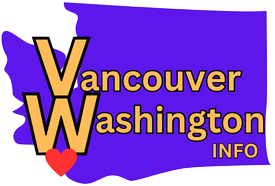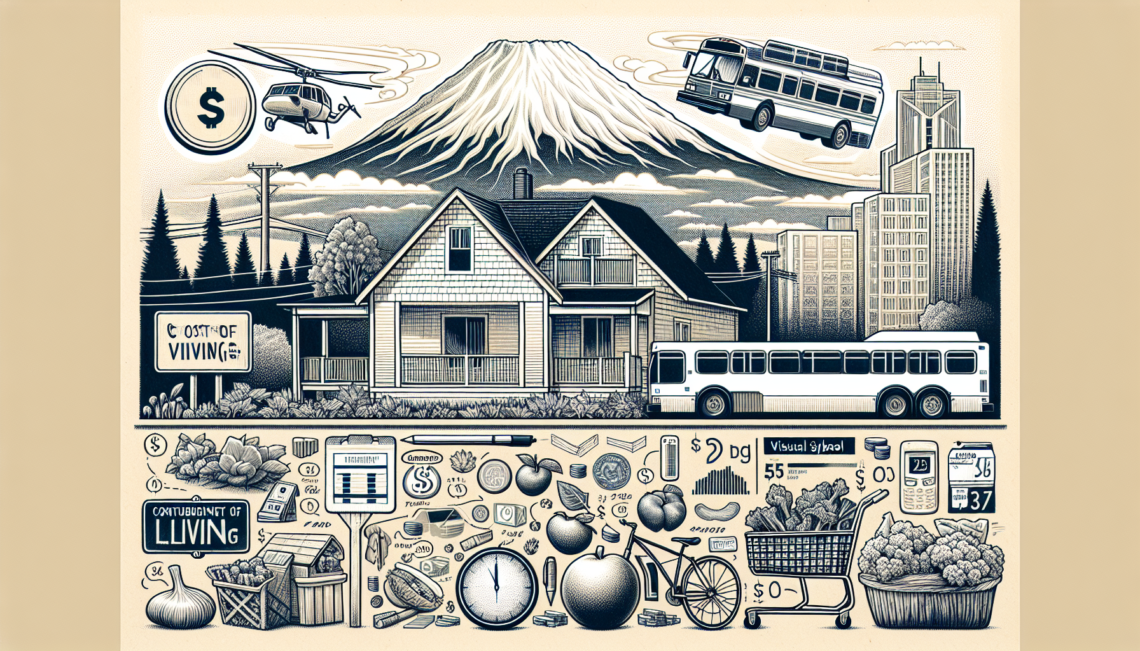
Is Vancouver Washington an expensive place to live?
Living in Vancouver, Washington may not be the cheapest option, but the vibrant cityscape, stunning natural beauty, and myriad of recreational opportunities make it well worth it. From its picturesque waterfront to its bustling downtown, Vancouver offers a high standard of living and a strong sense of community. While prices for housing and groceries may be slightly higher compared to other cities, the overall quality of life and the array of amenities available make Vancouver an attractive place to call home.
Table of Contents
ToggleCost of Housing
Average home prices
Vancouver, Washington has seen a steady increase in home prices over the years. The average home price in this area is around $400,000. However, it is important to note that housing prices can vary depending on the neighborhood and the size of the property. If you are looking for a more affordable option, you may consider exploring the outskirts of the city where home prices tend to be slightly lower.
Rental prices
Renting in Vancouver, Washington can also be quite expensive. The average monthly rent for a one-bedroom apartment in this area is around $1,500. Larger apartments or houses with multiple bedrooms can cost significantly more. It is worth mentioning that rental prices have been on the rise in recent years, reflecting the high demand for housing in this area.
Property taxes
When it comes to property taxes, Vancouver, Washington has a moderate tax rate compared to other cities in the United States. The average property tax rate is around 1.05%. It is important to consider property taxes when purchasing a home, as they can significantly impact your overall housing expenses. However, it is worth noting that property taxes can vary depending on the specific location within Vancouver.
Cost of Transportation
Gas prices
The cost of gas in Vancouver, Washington is generally in line with the national average. As of now, the average price for a gallon of gas in this area is around $3.00. This cost can fluctuate due to various factors such as global oil prices and local supply and demand. It is always a good idea to factor in gas prices when planning your transportation budget.
Public transportation
Vancouver, Washington offers a reliable public transportation system. The C-TRAN bus system serves the city and the surrounding areas, providing convenient transportation options for residents. The cost of a bus fare is around $1.75, with discounted rates available for seniors and students. Monthly passes are also available for frequent commuters, offering a cost-effective option for those who rely on public transportation.
Vehicle registration
If you own a vehicle in Vancouver, Washington, you will need to register it with the Department of Licensing. The cost of vehicle registration includes an initial fee, which can vary depending on the type and weight of the vehicle, as well as an annual renewal fee. It is important to budget for these costs when considering the overall transportation expenses of living in Vancouver.
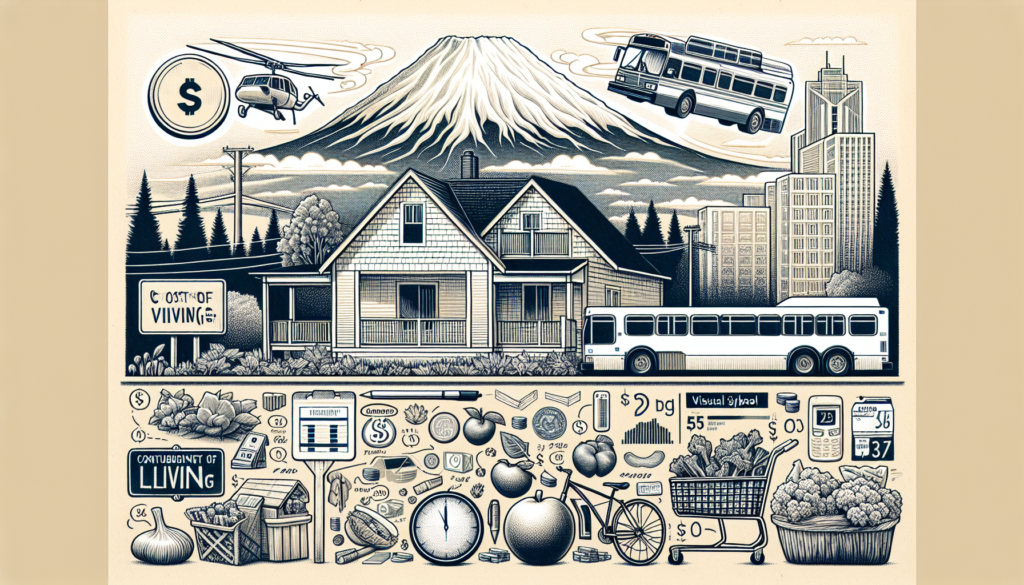
Cost of Food
Grocery prices
When it comes to grocery prices, Vancouver, Washington offers a range of options to accommodate different budgets. There are several supermarkets and grocery stores in the area, offering a variety of products at competitive prices. On average, a basic grocery shopping trip for a week’s worth of essentials can cost around $75 to $100 for a single individual. However, prices may vary depending on your dietary preferences and the specific items you purchase.
Dining out
Vancouver, Washington has a thriving food scene with a diverse range of restaurants, cafes, and eateries. Dining out in this area can offer a wide range of options to suit different budgets. A typical meal at an inexpensive restaurant can cost around $10 to $15 per person, while a three-course meal for two at a mid-range restaurant may cost around $50 to $60. Fine dining options are also available for those looking for a more upscale experience.
Farmers’ markets
Vancouver, Washington is known for its vibrant farmers’ markets, where local farmers and artisans come together to sell their products. Visiting these markets can be a great way to support local businesses and purchase fresh, locally sourced produce and goods. Prices at farmers’ markets can vary depending on the season and the specific items you choose to purchase, but they generally offer affordable options for those looking to buy fresh and sustainable products.
Cost of Utilities
Electricity
The cost of electricity in Vancouver, Washington is relatively reasonable compared to other areas in the country. The average monthly electricity bill for a typical household is around $100 to $150. However, it is important to note that actual costs can vary depending on factors such as the size of your home, energy consumption, and seasonal variations in usage.
Water and sewage
Water and sewage rates in Vancouver, Washington are typically included in the monthly utility bill. On average, a typical household can expect to pay around $50 to $75 per month for water and sewage services. It is worth mentioning that these costs can fluctuate depending on household size, water usage, and any additional fees or surcharges imposed by local authorities.
Internet and cable
Internet and cable services are widely available in Vancouver, Washington, with several providers offering competitive rates and packages. The cost of internet and cable services can vary depending on the provider, the speed and quality of the connection, and any additional features or channels you choose. On average, a basic internet and cable bundle can cost around $70 to $100 per month.
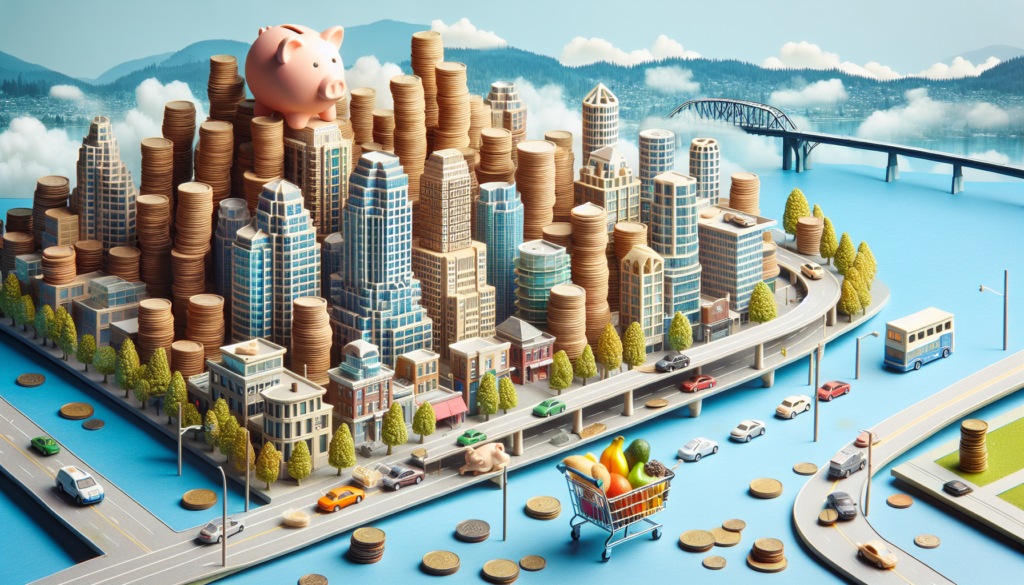
Cost of Healthcare
Health insurance
Health insurance costs in Vancouver, Washington can vary depending on various factors such as your age, health condition, and the level of coverage you choose. It is important to have health insurance coverage to ensure access to medical services and to protect yourself from unexpected healthcare expenses. Average monthly premiums for a single individual can range from $300 to $600.
Doctor visits
The cost of doctor visits in Vancouver, Washington can vary depending on factors such as the type of healthcare provider, the nature of the visit, and your insurance coverage. On average, a routine visit to a primary care physician can cost around $100 to $150. Specialty visits, such as visits to a specialist or consultations with a healthcare professional, may cost more depending on the specific service provided.
Prescription drugs
The cost of prescription drugs in Vancouver, Washington can vary depending on the specific medication, dosage, and insurance coverage. It is always a good idea to check with your healthcare provider and insurance company for the most accurate pricing information. Many pharmacies in the area offer generic options and discount programs to help make medications more affordable for residents.
Cost of Education
Public schools
Vancouver, Washington is home to a number of public schools that provide education to students from kindergarten through high school. Public education in this area is funded through property taxes and state funding. As a result, public schools in Vancouver generally do not charge tuition fees. However, it is worth noting that there may be costs associated with school supplies, extracurricular activities, and transportation.
Private schools
Vancouver, Washington also has several private schools that offer alternative educational options. Private schools typically charge tuition fees, which can vary depending on the specific school, grade level, and any additional services offered. Tuition fees for private schools in Vancouver can range from a few thousand dollars to tens of thousands of dollars per year.
Colleges and universities
Vancouver, Washington is home to Washington State University Vancouver, which provides higher education opportunities for students in the area. Tuition fees for colleges and universities can vary depending on factors such as the specific program, in-state or out-of-state residency, and any financial aid or scholarships that may be available. It is recommended to research and compare tuition fees before making a decision about higher education.
Cost of Goods and Services
Clothing and personal items
Vancouver, Washington offers a range of shopping options for clothing and personal items. There are various retail stores and shopping centers in the area that cater to different budgets and preferences. The cost of clothing and personal items can vary depending on the brand, quality, and specific items you are looking for. It is worth exploring different stores and comparing prices to find the best deals.
Home goods
Whether you are looking to furnish a new home or upgrade existing items, Vancouver, Washington provides numerous options for home goods shopping. From furniture stores to home decor boutiques, you can find a range of products to suit different budgets and styles. Prices for home goods can vary depending on the brand, quality, and specific items you are looking for.
Entertainment
Vancouver, Washington offers a variety of entertainment options for residents and visitors alike. From movie theaters to museums and outdoor activities, there is something for everyone. The cost of entertainment can vary depending on the specific activity or venue. Movie tickets, for example, can range from $10 to $15 per person, while admission fees for museums and attractions can range from $10 to $20 or more.
Income and Job Market
Average income
The average income in Vancouver, Washington can vary depending on the industry, occupation, and level of education. However, the median household income in this area is around $60,000 per year. It is important to note that individual incomes can vary significantly based on factors such as experience, qualifications, and job market demand.
Unemployment rate
As of the latest data, the unemployment rate in Vancouver, Washington is relatively low compared to the national average. The city has a diverse job market with opportunities in various industries such as technology, healthcare, education, and manufacturing. It is advisable to research the job market and industry trends specific to your field of interest before making any career decisions.
Job opportunities
Vancouver, Washington has seen steady growth in job opportunities in recent years. With a mixture of small businesses, large corporations, and a strong entrepreneurial culture, there are ample opportunities for individuals in various industries. It is important to network, research, and actively seek out job opportunities to increase your chances of finding suitable employment.
Taxes
Income tax
Washington State does not have a state income tax. This means that residents of Vancouver, Washington are not required to pay a state income tax. However, it is important to consider federal income taxes when calculating your overall tax liabilities.
Sales tax
Vancouver, Washington has a sales tax rate of 8.4%, which is slightly higher than the national average. This means that when you make a purchase, you will be charged an additional 8.4% on the total cost of the item or service. It is important to include sales tax in your budget planning to ensure you are accounting for the full cost of your purchases.
Property tax
As mentioned earlier, Vancouver, Washington has a moderate property tax rate compared to other cities. It is important to consider property taxes when purchasing a home, as they can significantly impact your overall housing expenses. The average property tax rate in Vancouver is around 1.05%. However, it is worth noting that property taxes can vary depending on the specific location within the city.
Quality of Life
Crime rates
Vancouver, Washington has a relatively low crime rate compared to other cities in the United States. However, it is always a good idea to stay informed about the specific neighborhood you are considering moving to and to take necessary precautions to ensure your safety and the safety of your belongings.
Parks and recreation
Vancouver, Washington offers a variety of parks and recreational areas for residents to enjoy. From hiking trails to sports fields and playgrounds, there are ample opportunities for outdoor activities. Many parks in the area are well-maintained and offer beautiful natural landscapes for relaxation and leisure.
Cultural events
Vancouver, Washington has a vibrant arts and culture scene, with regular events and festivals taking place throughout the year. From art exhibits to live performances, there are plenty of opportunities to immerse yourself in the local culture. Additionally, the city is located within close proximity to Portland, Oregon, which offers even more cultural events and attractions.
In conclusion, while Vancouver, Washington may have certain aspects that contribute to its overall cost of living, such as housing and healthcare expenses, it also offers a range of amenities and opportunities that enhance the quality of life for its residents. By carefully considering and budgeting for the various costs and understanding the job market and tax implications, you can make informed decisions about living in this vibrant city.
You May Also Like
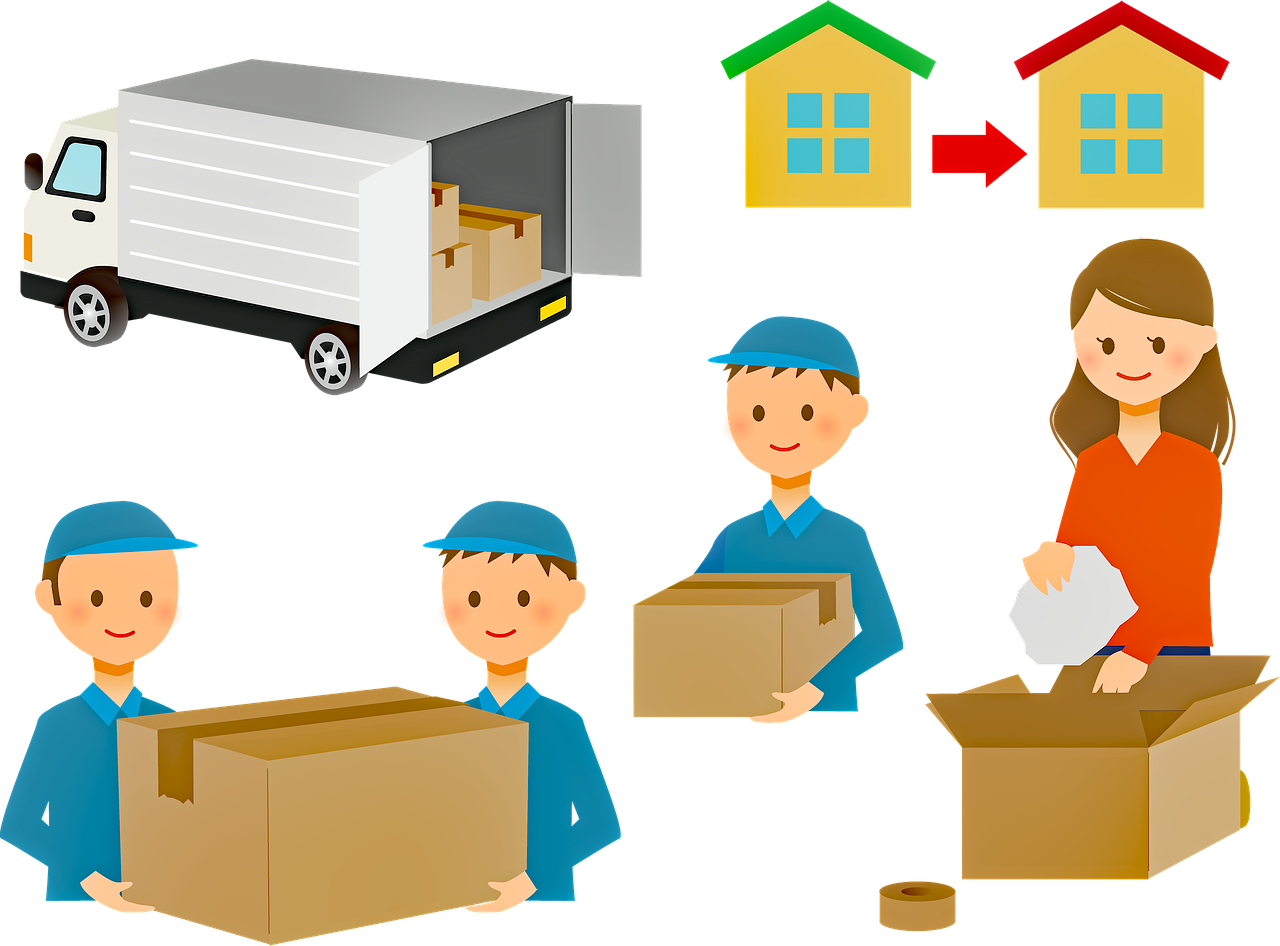
Moving to Vancouver Washington Costs
13 August 2023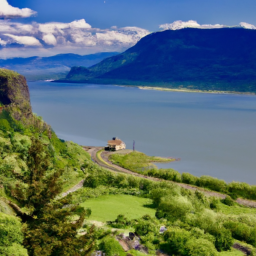
Clark County, WA COMPLETE Map Tour! | Everything You Need to Know
16 August 2023
